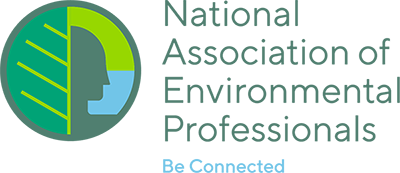|
< Return to program
Cultural Resources
Transportation Planning: Cultural Resources Management and Climate Change Adaption and Resilience
January Tavel and Tait Elder
Monday, May 20
Maryland Room
4:00 PM
About the Session
Like other environmental professionals in transportation, cultural resource managers at transportation agencies and state historic preservation offices are in the process of considering how to adapt to the impacts of increased frequency and intensity of sea level rise, tropical storms, drought, wildfire, and flooding to cultural resources. To better understand the current state of climate change preparedness as well as the factors that inhibit preparedness for cultural resource managers, the National Trust for Historic Preservation partnered with ICF to perform a nationwide survey to determine the state of awareness, needs, and priorities among cultural resource managers.
The survey identified several key inhibiting factors and priorities, including the need for further inventory of resources threatened by climate change, clear guidance documentation, climate change policy advocacy; and a lack of available funding. This session will explore these and other issues related to climate change preparedness and adaptation as they relate to transportation infrastructure. Whether vulnerable transportation assets require adaptation strategies that trigger compliance with state or federal environmental regulations or stewardship of historically significant transportation infrastructure demands preservation treatments that respond to climate change impacts, professionals in transportation planning, climate change adaptation, and cultural resource management are facing new challenges. As such, this session will address questions that include:
- What climate change impacts most frequently threaten historic transportation infrastructure?
- What types of historic transportation infrastructure appear to be most vulnerable?
- What types of climate change adaptation projects are most likely to impact cultural resources?
- What tools and approaches are most useful for evaluating vulnerability and developing a responsive management strategy?
- What existing standards, guidelines, best practices, and policies related to transportation, climate change, and cultural resource management are relevant?
- What gaps exist and how might we best respond?
About the Presenters
|
 January Tavel January Tavel
January Tavel is a historic preservation specialist and qualified as a historian and architectural historian under the Professional Qualification Standards of the U.S. Secretary of the Interior (36 C.F.R. § 61). She applies professional cultural resource management and historic preservation expertise in service to public and private clients, with specialized experience in the transportation sector. In addition to helping her clients successfully navigate environmental compliance and preservation planning processes, January coordinates an interdisciplinary working group of ICF technical specialists who collaborate on the integration of cultural resource management and climate change adaptation. She has worked with federal, state, and local agencies, as well as national, regional, and local nonprofit organizations to address the challenges of climate resilience within the context of preservation planning considerations. On behalf of ICF and in partnership with the National Trust for Historic Preservation, she authored the 2017 Heritage Preservation and Climate Change Survey Findings and Recommendations Report. She has been invited to speak about this work at national conferences, including the 2017 National Adaptation Forum in St. Paul, MN, and 2017 National Trust for Historic Preservation PastForward Conference in Chicago, IL, and local events, such as the 2017 and 2018 Cultural Resources Protection Summit in Suquamish, WA, 2018 Keeping History Above Water – West Workshop in Palo Alto, CA, 2018 Women’s Transportation Seminar Puget Sound Chapter Building Resilience to Climate Change lecture in Seattle, WA, and 2016 California Preservation Foundation Strategies for Resiliency of Historic Resource Workshop in San Francisco, CA.
|
|
 Tait Elder Tait Elder
Tait is a qualified archaeologist (36 C.F.R. § 61) and is a member of the register of professional archaeologists. He has over 15 years of professional cultural resources experience throughout the United States, and has specialized technical expertise includes geoarchaeology, archaeological research design, and invertebrate faunal analysis. With this expertise, he has authored several articles that consider the natural and anthropogenic factors of archaeological site preservation and sampling. With Tait’s combination of technical expertise and experiences; he helps his agency and private sector clients from the transportation, disaster recovery, and habitat restoration sectors navigate state and federal cultural resource regulations safely and defensibly. Tait is experienced in designing and implementing cultural resources projects in accordance with Section 106 of the NHPA, NEPA, Section 4f, and has coordinated with SHPOs, Native American tribes and agencies on behalf of his clients. He places particular emphasis on designing cost-effective research strategies for identifying archaeological risk based on the unique landscape history of each project.
|
|

 January Tavel
January Tavel Tait Elder
Tait Elder